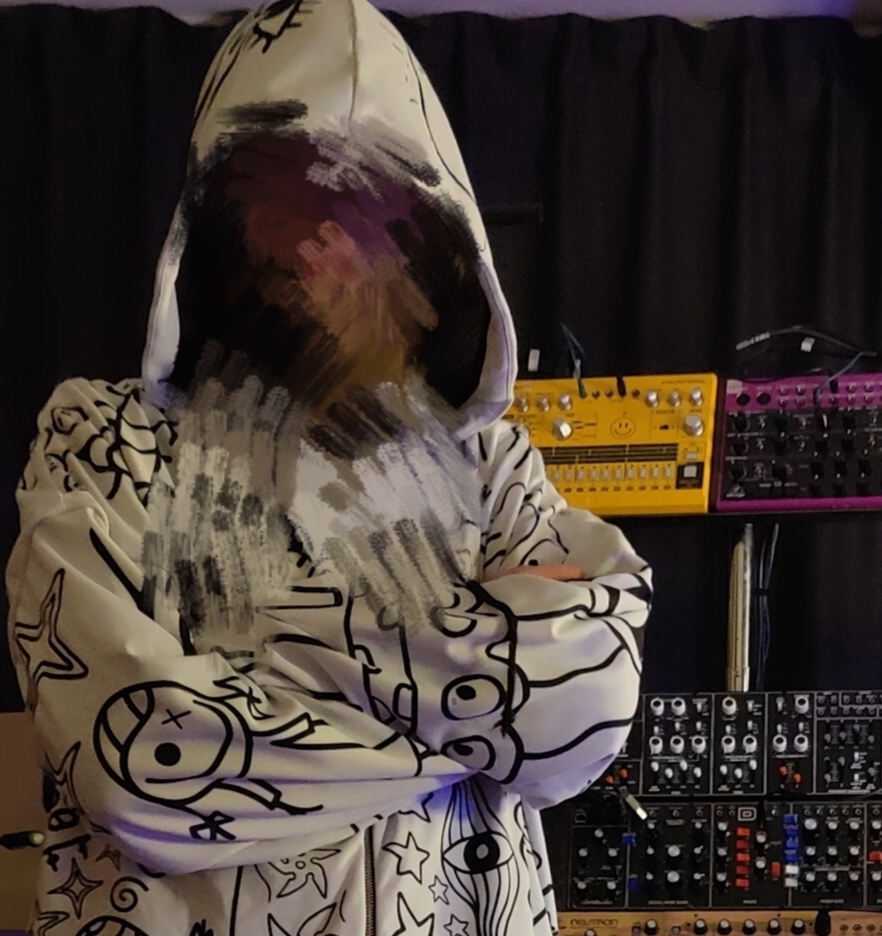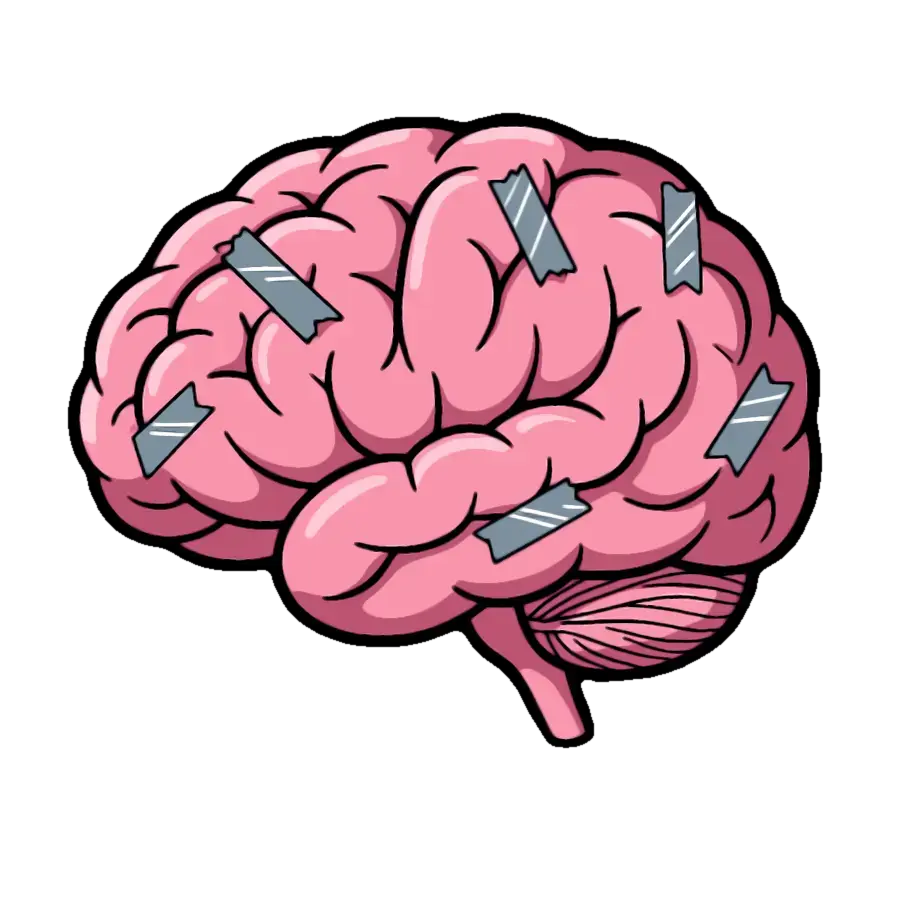“Chemical” is now used with the meaning of “ultra-processed ingredient with either unknown origin or unknow effect on your body”. It is not the first meaning of the term but I guess it is a meaning now and we have to deal with it.
A better question is “is this ultra processed”
Like, is this a product comprised mostly highly refined and modified ingredients? And thus is it likely to have had important nutritional components removed?
In all likelihood, none of the actual ingredients are actively bad for you in moderation, but, it’ll be nutritionally lacking.
They put chemicals in everything now. I heard they even put dihydrogen monoxide in the water!
Everything is made of chemicals
I saw a bumper sticker that said “Do you eat GMO food?” me being smart ass and liking history said yes. Damned near all food humans eat at scale has been modified through artificial selection, at least if it’s in a lab we are less likely to inbred the plant so badly that they are effectively a clone species. Also I thought of cows when I read that sticker a notable downgrade from the might aurochs.
Chemicals can also be non vegan. Side note: for a long time (might still be) camera film wasn’t vegan, since it used bovine gelatin. Kodak Eastman even had their own cow ranch to supply all the bones. (Goes to show chemicals don’t have to be vegan)
Goes to show chemicals don’t have to be vegan
There is a lot of them. In the EU classification of food additif, anything under the E47 categorie can either be animal or vegetal. E471 for example could be either pork skin, beef bones, fish bones, palm or coconut oil derivative. Nicely wrapped and served in so many bread and brioche product to Jews, Muslims, Hindus, vegetarians and vegans.
And there is so many more that are straight up animal products but presented in a latin name. In France, industrials even started to used Canadian french terms to confuse people when the insect additives for colours and textures started to gross out to many people.
Okay, look. Atoms, in all their wonder make up pretty much everything known to exist in the universe. Chemistry, the science of chemicals, is just taking that understanding we have of atoms and applying it to how the atoms interact based on what atoms are there, their charges, bonds, etc.
Thus unless it’s on the periodic table, where it would be an element, then it’s a chemical.
Even assuming that instead of “chemicals”, people mean synthetic chemicals… To that I say… Who cares?
Synthetic chemicals come in two forms: a synthesized version of a chemical that is naturally occurring, where synthesis is a more commercially viable way to obtain that chemical, or a chemical that isn’t found naturally, which undergoes significant scrutiny before anyone is allowed to put it in your food and sell it to you.
We generally give “natural” chemicals less scrutiny than synthetic chemicals. And I’ll remind everyone that cyanide is a naturally occurring chemical. Though it’s natural, we don’t general add that to our food. Some food contains cyanide naturally, like cherry pits, but that’s usually a part we don’t eat.
The WHO has a whole article about toxins in food… https://www.who.int/news-room/fact-sheets/detail/natural-toxins-in-food
So yeah, it might be made of synthetic chemicals, which have been researched, scrutinized, and peer reviewed before being approved for consumption and being put in my food. I can’t say the same for literally anything “natural”. We just ate that shit and if you died from eating a thing, nobody else ate that thing. And that was the way of things before modern science and chemicals…
So fuck you, and the horse you rode in on.
As someone wholly uneducated on these kinds of things, I just choose to use the heuristic of defaulting to using/ingesting natural substances, as much as practical, because we evolved with them and it would seem more likely our bodies (and the ecosystem) know how to deal with them. I also don’t trust the government to be discerning/uncorruptible enough to not allow stuff to pass that shouldn’t, especially now. Peer review is more trustworthy though, and gets more trustworthy the longer something has been around and studied more.
I feel you’re mixing stuff up here, don’t eat processed food, buy “bio”/“ecological” if you’d like less bad stuff in your food.
Belladonna is natural and saves lives, take too much and you die. This whole “natural” thing is so infested with scammers, it’s just not “the government”.
Oh yeah, true. Forgot about the the supplement grift.
Literally everything is made out of chemicals. Naturaphiles are loonyburgers.
Also: botulinum toxin, ricin, lead, uranium, ebola, the fucking sun… The list of completely natural things that can kill us in the most horrific ways imaginable is almost endless.
No thanks. I only eat photons.
Me, crushing up blood-cruelty cocaine in a tiny one-cent plastic baggie: “I really hope this baggie doesn’t have PFAS in it…”
I live with two junkfood vegans and oh my god dude. I’m literally broke and eating from food banks and my diet is less bad than theirs.
Junk vegans are truly majestic creatures
People don’t seem to understand that even chemicals are made of something. They’re not synthesized out of thin air. It is not stupid to ask what they’re made of. The resources can be very diverse.
The “something” in question is elements. Barring the very inadvisable edge case where you’re ingesting some kind of pure metal or degenerate matter there is not anything you can eat that does not contain chemicals.
Complaining about a food containing “chemicals” makes about as much sense as calling out the software you use for being compiled from “code”.
Yes, but what I meant was, for example, artificial vanilla flavour is a chemical, which used to be made from cloves oil, now is made from wood compounds. The processes and ingrediences needed to produce it are also diverse and interesting.
I’m confused. I thought veganism was about animal welfare, what does it have to do with food being made out of chemicals?
The same exact compounds found in food and other products can either originate from an animal or a non-animal source. Veganism is about avoiding the animal sources. The compound itself is mostly irrelevant.
it is but it’s also hitched to “crunchy” culture, which has some weird braindead threads running through it about body purity and “nature = good”.
Hi Vegan 1!
So I’m a vegan. The 2 types of vegans I see are these:
-
The terror vegan: “Everyone who isn’t 100% vegan is a genocidal nazi and I’ll make sure to tell them constantly.” aka the ones that give veganism a bad name.
-
The normal vegan: “When it comes to pollution, the mega corps are at failt. But when it comes to animal product consumption, the consumer is the driving factor. I can’t expect everyone to become a vegan, but it would already help a lot if everyone would start to consume a bit less. Like once or twice a week no meat. But if you won’t I wouldn’t hold it against you, we’re still friends after all.” aka the vegan I’d like to be.
Sadly there’s extremism in every field.
I actually had a super chill vegan patient the other day who was aging remarkably gracefully into trailer-trash (my own cultural roots), complete with 40 pack-year smoker’s voice and skin that belongs in a cancer PSA. They told me they aren’t completely married to the idea but that they do their best and would like to be able to read the labels on what they get if possible. They pointed out that their breakfast tray arrived with biscuits and sugar and commented that the biscuits were almost certainly made with eggs and butter, and that the sugar was probably bleached using animal products (not sure about that one). I definitely didn’t have anything decent to say about the biscuit thing. For them it was definitely more about the animal welfare thing than the chemical thing. They were pretty frank about not being too fussy about the chemicals that went into their body.
To me it’s 3 things why I’m vegan (although I do eat cheese sometimes, there’s no proper substitute and I’m a Dutch cheese head).
- Animal cruelty
- Health
- Enviroment
So I prefer to substitute meat with beans for example, instead of heavily processed fake meat. Although sometimes a proper vegan burger, like the BeyondBurger, is nice (unhealthy) comfort food. Also on holiday to Cambodia I did eat some meat as I wanted to experience the original Cambodian cuisine. That was the first time in 12 years I ate meat and it got me food poisoning which resulted in a heavy stomach infection. Worth it though, the Cambodians know how to cook!
deleted by creator
I’m a meat eater. I like meat. I consider myself someone who eats meat regularly. That means I eat, like, one slice of ham and 5 köttbular in a month. And I might treat myself to a salad with chicken breast in a restaurant when I manage to quiet down the voice in my head complaining about the chicken most likely not being farmed very well. Whenever I read a sentiment like “try to not eat meat 1 or 2 days in a week” I am reminded that there are really people out there who just, like, buy meat every single time they are in the grocery store and cook it daily. That seems so nuts to me.
Depending on the location, I’m pretty sure the norm is meat every day. In the Midwest, it’s not just meat every day. It’s meat every meal.
That’s crazy but I also notice that amongst people eating crazy amount of meat there is a lot of people that only eat a few types of meat (pork, beef, chicken, turkey and always the same cut).
I eat meat once every 10 days plus on party days. But I eat so much more diversity than these canivorous eaters. What about lamb, veal, mutton, duck, rabbit? What about tongues, giblets and so on? They say they love meat taste but it is like it is only when the taste is mild enough.
I don’t think I’ve met #1 in real life, besides knowing more than a few of #2. The first one just gets really loud on the Internet.
Oh I’ve met plenty. And I try to stay clear of them
I don’t think the consumer is primarily responsible for determining how animal agriculture operates. Even the demand for meat and dairy was and is coercively and artificially manufactured.
(Small example: a Tyson executive uses university ag programs to setup chicken farming in rural parts of Africa, and the locals there do not eat chicken and are forced to eat chickens under the contract as a condition to get access to the capital - the goal is to setup the whole market, generate both demand and supply for chicken meat in this rural part of Africa.)
The US government uses taxes to buy up dairy and meat that was not purchased based on demand, nullifying individual vegan boycotts and artificially propping up those industries.
Veganism is not primarily helpful by reducing the demand on the individual level, but instead has found the greatest successes from lobbying governments to pass animal welfare laws and organizing protests to generate pressure and support for those laws.
The US government uses taxes to buy up dairy and meat that was not purchased based on demand, nullifying individual vegan boycotts and artificially propping up those industries.
That’s taking a really short term view of it. As demand has stayed low enough for long enough, they have cut back on the amount and paid dairy farmers to not operate. These kinds of programs can only prop something up for so long
but instead has found the greatest successes from lobbying governments to pass animal welfare laws and organizing protests to generate pressure and support for those laws
Animal welfare laws do not fix the fundamental issue with these systems. As long as the industry exists in a large scale capacity, it will find the cruelest ways to operate. As long as meat, dairy, etc. are consumed in mass, factory farming will exist
For instance, US beef consumption cannot be supplied by a pasture-based system. There is only enough land to support 27% of the consumption, and that still raises methane emissions by 8% so we would need to be consuming even less if we wanted to avoid emission reductions from a move like that
Various laws and larger action can be effective though. Like putting plant-based options by default has been tested in some places, has substantially reduced demand and still kept satisfaction high. Or things like prohibiting the production of Fur, Foie Gras, etc.
I tend to agree, in the long term there has to be a cultural shift and my point is only that the hyper-individualist approach to American veganism is myopic and focused on the wrong actions and for the wrong reasons, treating the act of putting animal products in the body as the biggest sin when the harms are primarily systemic and not best tackled through individual lifestyle changes. This is like thinking you can end capitalism by just buying from cooperatives or fix climate change by not using plastic straws and recycling.
Even in terms of individual-scope action, you could make stronger arguments for engaging in workplace organizing in Tyson factories, tax resistance, and collaborating with local vegan activists to stage protests or direct actions.
Not that I’m down on veganism, just that I think the portrayal of responsibility primarily falling on you, the average consumer, is emphasized too much and makes a convenient scapegoat for the ag corporations that are making all the decisions that create the atrocities we know about. Ultimately that scapegoating is not veganism, it’s a strawman, but it is maybe how most people think about vegansim, including many vegans I know - it’s all about individual lifestyle choices and taking individual responsibility while not participating or engaging meaningfully in collective action or analyzing the problem structurally.
In addition to everything you mentioned it’s also heavily subsidized as a baseline with >38B in subsidies vs the 170.38B meat market and 74.16B dairy market. Direct subsidies alone account for 15% of the total market.
greatest successes from lobbying governments to pass animal welfare laws and organizing protests to generate pressure and support for those laws.
It’s worth noting that it’s more often the ‘type 1’ vegan which is generally more effective at this, and why they’re seen as ecoterrorists and why things like ag-gag laws “needed” to be passed.
-
The whole ‘duh, everything is made of chemicals’ argument is a corporate attempt at downplaying the prevalence of unnecessary and even harmful additives in US foods that have long been banned in the EU.
Next time you see a meme about a woman asking ‘is this ham processed?’ with a response ridiculing her about it, look up Ractopmine.
This terminology people use without knowing anything about anything is actually corporate thing. It might originated from uneducated scared hippies, but it became popular and prevalent after corpos discovered that this kind of language allows them to greenwash the shit out of their products for free. “Other ham is made of chemicals, but ours is organic!” is technically correct phrase that is insidiously lying right to your chemistry-101-failed-face.
All this bullshit just stops the conversation about corporate accountability, or about actual implications of a specific diet, this conversations are impossible to have when your starting point is “chemicals bad”.Next time you ask “if this ham processed”, remember that the only correct answer to this is yes, otherwise the ham os oinking and tries to run away when you’re trying to bite it.
tell me one food that isn’t made of chemicals
Sunlight
You have a point.
From my understanding the only way to get sunlight into your body as nourishment is via the butthole.
That’s what I’ve heard anyways.
What, you aren’t on the dark matter diet yet?
Is sunlight considered plant food? Also there are fungi that feed on ionizing radiation.
🎶 Now you can eat sunlight! 🎵
Imaginary corn.
Is the Glow Cloud vegan?
Sugar? It’s made of chemical.












